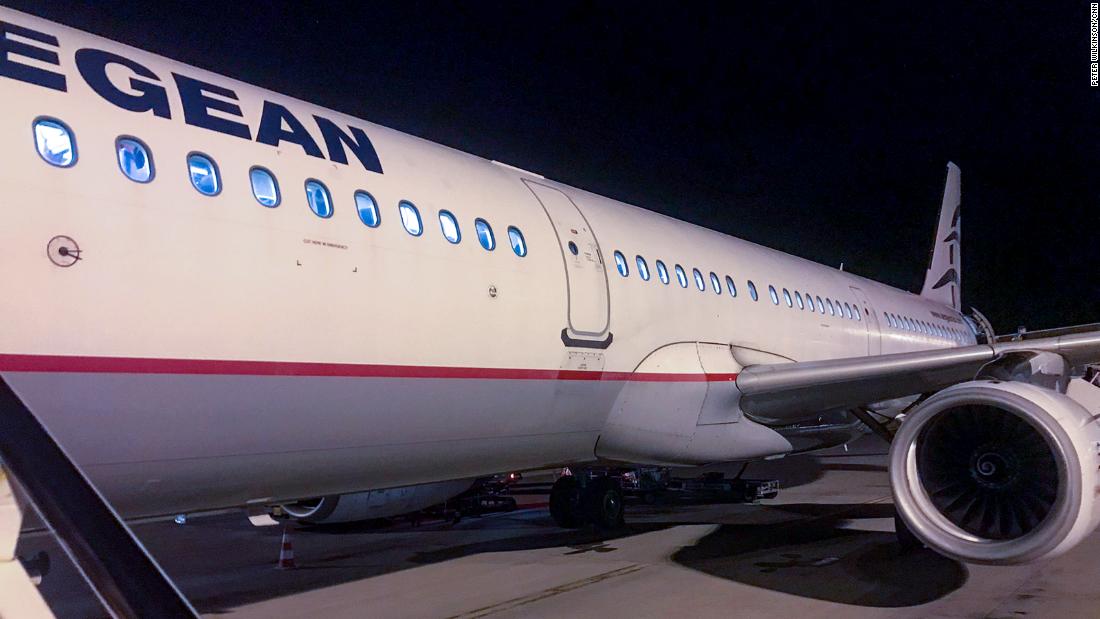Moscow (CNN) — The closure of Europe’s skies to Russia’s airplanes has created real problems for travelers trying to fly both to and from the country as it continues its invasion of Ukraine.
That’s led to a scramble for the last planes in and out. For some passengers it was a race against time — as successive airlines canceled flights to comply with airspace restrictions or the logistical problems created by newly imposed sanctions.
Trying to reach CNN’s Moscow bureau from London on Sunday, I experienced some of the challenges other passengers must’ve faced, trying to slip across borders as they slammed shut.
I was originally booked to fly early in the day from London’s Heathrow on a Lufthansa flight via Frankfurt. All looked OK earlier in the day, even though the UK and Russia had already severed direct air links.
More airspace closures followed in the subsequent hours, but Lufthansa remained on track, right up until 11 p.m. — just eight hours before check-in — when I discovered my flight was canceled as Lufthansa pulled the plug on all its Russia-bound routes.
The next few hours were a frantic search for an alternative flight that wasn’t in danger of being grounded.
One possible plan might have been to fly via Casablanca on Air Maroc, but despite the prospect of a brief journey south out of the cold European winter, it was quickly dismissed as an option. The risk of being stranded in Morocco if the second leg of the journey was scrapped for similar reasons was too great. It would also have taken too long.
Instead, flying on Greece’s Aegean Airways and transiting at Athens seemed like the best solution, although my flight was due to arrive at 4 a.m. on Monday — a punishing time ahead of what was likely to be a hectic work schedule.
As I drove to Heathrow on Sunday, and more airlines pulled the plug on flights to Moscow, I began to feel more pessimistic about my chances of reaching Moscow.
Mid-air turnarounds
It was quite possible that while I was in the air on the first leg of my journey, Greece or the wider European Union might impose sanctions, possibly forcing the airline to suspend flights to Russia.
If that happened, I could be stuck in Athens and forced to arrange a frustrating flight back home.
On Saturday, Air France subsidiary KLM was forced to turn around two flights while they were in the air to Moscow and St. Petersburg over fears that European sanctions might mean the airline was unable to send spare aviation parts to Russia.
This could have meant the airliners being stranded in those cities if they developed technical issues.
There seemed no alternative then but to take the risk without another viable option to reach Moscow quickly.
The first leg of my journey was predictably uneventful. As the plane came to a halt at Athens airport late on Sunday evening, I searched for news of any new sanctions being announced or more airline cancellations as soon as I could. So far, nothing.
I boarded the second plane after a brief stopover in the Greek capital, with every stage of the usually mundane takeoff procedure taking on extra significance given the heightened fears of flights being canceled or turned around. Doors closing. Plane taxiing. Liftoff! Surely nothing could go wrong now.
It didn’t — although while I was in the air, the EU announced it would close its airspace to Russian traffic.
My airplane flew into snowy Moscow from the south, skirting Ukraine’s airspace that is closed in the wake of the invasion, and landed safely.
The question now, in the wake of Monday’s closure of Russian airspace to 36 countries, is when and how I’ll make the return journey.
Top image credit: Peter Wilkinson/CNN
